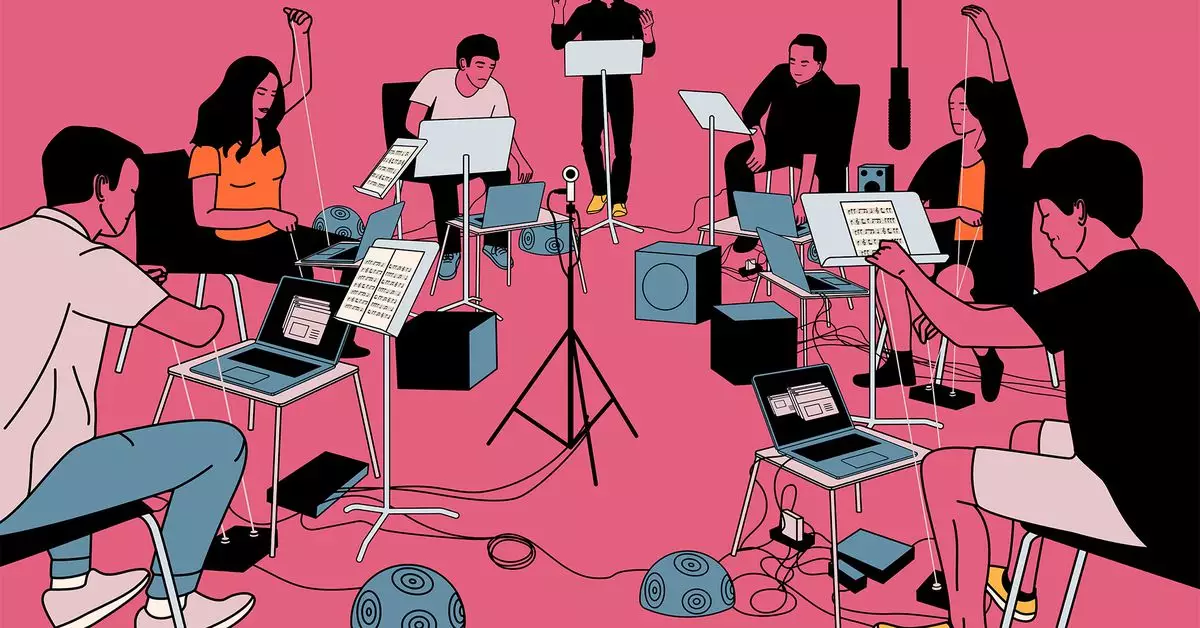In today’s technology-driven world, the boundaries of music creation are continually being reshaped. Unlike conventional musicians who view computers merely as a tool for composing, Ge Wang approaches music through a unique lens, focusing on the intersection of programming and sound. Wang, an associate professor at Stanford’s Center for Computer Research in Music and Acoustics, leads a multifaceted career that includes orchestrating a Laptop Orchestra, co-founding the innovative music app Smule, and developing the programming language Chuck, which transforms code into music. This multidimensional engagement with both technology and the arts offers him an unparalleled perspective on the future of music composition.
Wang’s philosophy promotes a playful exploration of technology among his students, urging them to treat it not merely as a means to an end but as a medium for creativity. This approach encourages experimentation, fostering an environment where students can freely interact with sound through unconventional methods and tools. As we delve into Wang’s insights, we discover that the fusion of technology and music holds limitless possibilities for artistic expression.
The ongoing advancements in artificial intelligence (AI) present both opportunities and challenges for musicians. In a recent conversation, Wang shared his vision for how tool makers should adapt to these rapid changes. He expressed concerns about the potential homogenization of creativity in an era where AI is designed to simplify the creative process, posing questions about the very essence of being human amidst such technology. The dialogue surrounding AI often gravitates towards questions of efficiency, yet Wang provocatively asks whether simplifying artistic endeavors is indeed the best goal.
As we discussed the implications of AI on creativity, Wang emphasized the importance of preserving the human element in music production. He argues that the hard work and complexity intertwined in artistic pursuits are fundamental to what makes the process rewarding. The risk lies in losing the raw, unfiltered experience of creation just because technology can make the process easier. If creators rely solely on AI to facilitate their work, what distinguishes art from mere output, and what does that imply about our role as humans in this evolution?
Ultimately, this discussion opens up deeper philosophical questions about our identity and purpose in a world that increasingly blurs the lines between human and machine. Wang’s focus on the experiential aspect of music creation serves as a reminder that, while technology can enhance our capabilities, it is the thoughtful engagement with that technology that instills value in our artistic endeavors. Whether composing a simple melody or an elaborate symphony, the essence of creativity remains rooted in the human experience.
Ge Wang’s insights serve as a crucial reminder for musicians and technologists alike. As we navigate the intricate dance between invention and artistry, it is essential to engage thoughtfully with the tools we wield. Through this intentional interaction, we can preserve the richness of human creativity, ensuring that our artistic expressions remain distinctively ours—complex, beautiful, and deeply human.


Leave a Reply